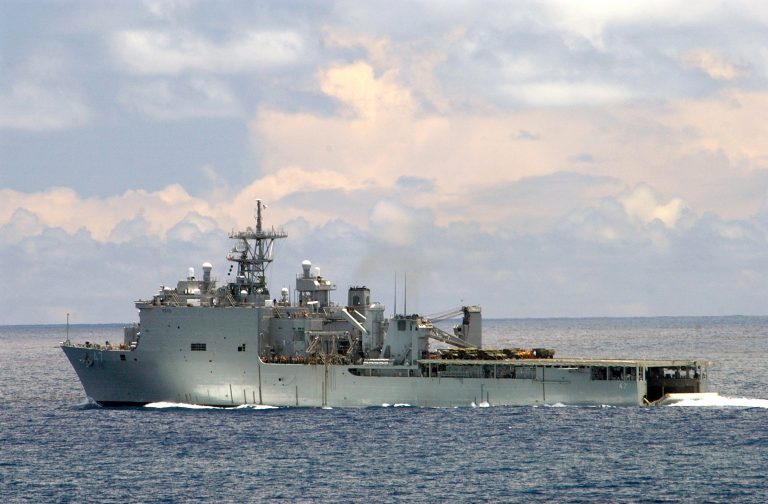President Joe Biden recently signed into law America’s defense spending blueprint for next year called the National Defense Authorization Act (NDAA). The act contains a provision that asks Washington to allow Taiwan to participate in next year’s Rim of the Pacific Exercise (RIMPAC) for the first-ever time. RIMPAC is the world’s largest naval exercise.
Section 126 of the NDAA deals with Taiwan. Citing the 1979 Taiwan Relations Act that allows the United States to supply Taiwan with weapons to defend itself against any attack by Beijing, the NDAA states that Washington should continue aiding Taiwan in boosting its self-defense capabilities. Taiwan’s participation in the RIMPAC will boost America’s efforts to support Taiwan as the island faces an “increasingly coercive and aggressive behavior” from the Chinese communist regime.
“RIMPAC involvement is a political statement as much as a professional opportunity. The invitation, should it take place, marks Taiwan as a friend and partner of the United States… [The NDAA language is] a strong politico-strategic statement that has its roots in China’s escalating aggression against Taiwan [and other nations in the Indo-Pacific region],” Carl Schuster, former director of operations at the US Pacific Command’s Joint Intelligence Center,told CNN.
Schuster added that Taiwan’s participation in RIMPAC will send a “strong political signal” to Beijing about the potential cost it will suffer should the regime choose the route of military aggression. The 2022 RIMPAC exercises are scheduled to take place during the summer. 20 nations, 48 military units, and 25,000 personnel are expected to take part in the event. RIMPAC has been held every two years since 1974. Hosted by the U.S. Navy’s Indo-Pacific Command, China has participated in the exercises two times – in 2014 and 2016.
In an interview with Radio Free Asia, retired U.S. Marine colonel Grant Newsham, who was in Taiwan in 2019 to research the defense system of the island, said that Taiwan attending RIMPAC will be “important politically.” It will be a sign of support to Taipei from the United States and other nations.
Success
You are now signed up for our newsletter
Success
Check your email to complete sign up
“If the Americans do not help Taiwan’s armed forces break out of over 40 years of isolation and give them the opportunity to train with somebody, Taiwan’s defense capabilities will not improve as they need to improve,” Newsham said.
Richard Bitzinger, a senior fellow at the S. Rajaratnam School of International Studies (RSIS), Singapore, expects Beijing to “react strongly” to Taiwan’s RIMPAC invitation. Though it will stoke tensions with Beijing, Bitzinger doesn’t see the incident eventually leading to a clash.
In its latest threat assessment, Taiwan’s Defense Ministry stated that Beijing will face difficulties in attempting a full invasion. In a report to the island’s lawmakers, the ministry pointed out that China’s transport capacity at present is limited due to which Beijing will not be able to land all its forces at Taiwanese shores in one go.
As such, Beijing will have to rely on “non-standard” roll-on, roll-off ships. Such ships will require port facilities. In addition, Beijing will also need transport aircraft, which necessitates access to airports.
Since the Taiwanese military will strongly defend its airports and ports, Beijing will have a difficult time landing its troops and military assets on the island. “The nation’s military has the advantage of the Taiwan Strait being a natural moat and can use joint intercept operations, cutting off the Communist military’s supplies, severely reducing the combat effectiveness and endurance of the landing forces,” the report said.
















